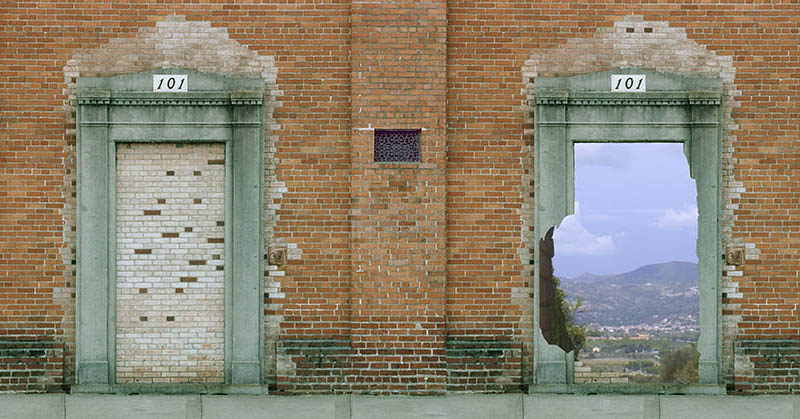
I was not yet five years old when I reluctantly climbed aboard the schoolbus for the first day of kindergarten. My mother had overcome my qualms with the promise that I would learn to read the newspaper like my father. Imagine my sense of betrayal when I got home that afternoon and found that the pages of the Toledo Blade remained as cryptic and incomprehensible as ever. I had not learned to read one word.

What I had learned in kindergarten was to place my right hand over my left nipple and recite, “I pledge allegiance to the flag …” In my preliterate state, these words surely meant nothing to me. Allegiance is not in the vocabulary of the typical four-year-old, and even pledge is doubtful. As the recitation continued, my confusion was compounded: “I pledge allegiance to the flag of the United States of America, and to the Republic Forwichistan …”
Eventually I did learn to read the newspaper just like my daddy, and I learned to correctly parse the words of the patriotic oath I swore every morning throughout my 13 years in the public schools. But the mysterious Republic of Forwichistan lingered on in my imagination. I rather liked the idea of a fantasy nation—an Oz, a Narnia—in which we could all claim secret citizenship. I counted myself a proud Forwichistani.
Now, suddenly, the joke isn’t funny anymore. Somehow we’ve all been transported to another country, an alternative America, and it’s no Shangri-La. Since the new regime took power a month ago, I’ve been bouncing from one emotional state to another: disbelief, fright, disgust, shame, depression, anger, resentment. But there’s also a grisly sort of fascination that keeps me tuned in to the ongoing debacle. It’s like gawking at an auto wreck as you pass by—the crumpled sheet metal, the shards of glass strewn across the road, the stretcher being loaded into the ambulance. I can’t not look. And I feel compelled to talk about what I see.
I am not a pundit or a policy wonk. My passions are science and mathematics and computation, which I write about in various places, including my other website, bit-player.org. But the collapse of Western civilization is a distraction that makes it hard to focus on cute puzzles in number theory or the latest algorithms for solving inverse problems in statistical mechanics. In recent months half of what I’ve published on bit-player has been politically charged in one way or another. (For example: Trump, Truth, and Trisectors.) I’m not entirely comfortable with that arrangement. When writing for bit-player, I long to get back to my innocent, idle, nerdy pursuits. Even in times of national distress—or especially then—we all need respite in some quieter corner of the universe. I’d like to preserve bit-player as such a refuge, for my readers as well as myself.
And so I have set up forwichistan.us as an outlet for more political and polemical and personal essays. I don’t know how to save democracy, but I’m certainly interested in exploring ideas for doing so. I don’t know what life is going to be like under a Trump administration, after the initial shock and awe, but I hope to keep up a running commentary on what I see and experience. In general, I’m looking for ways to be a useful citizen, and to make the best of my talents.
Of course science and math can’t really be divorced from public life. Indeed, the Trump administration’s scorn for science and reason is part of what makes it so dangerous. I may well end up writing on subjects that are both mathematical and political (redistricting, say, or the merits of the Electoral College, or climate modeling). Maybe I’ll publish those notes in both places. These are both my bully pulpits, after all.
At the moment this website has no facility for publishing reader comments. I’m considering ways to deal with that issue. In the meantime, feel free to get in touch by email or on Twitter.
—Brian Hayes